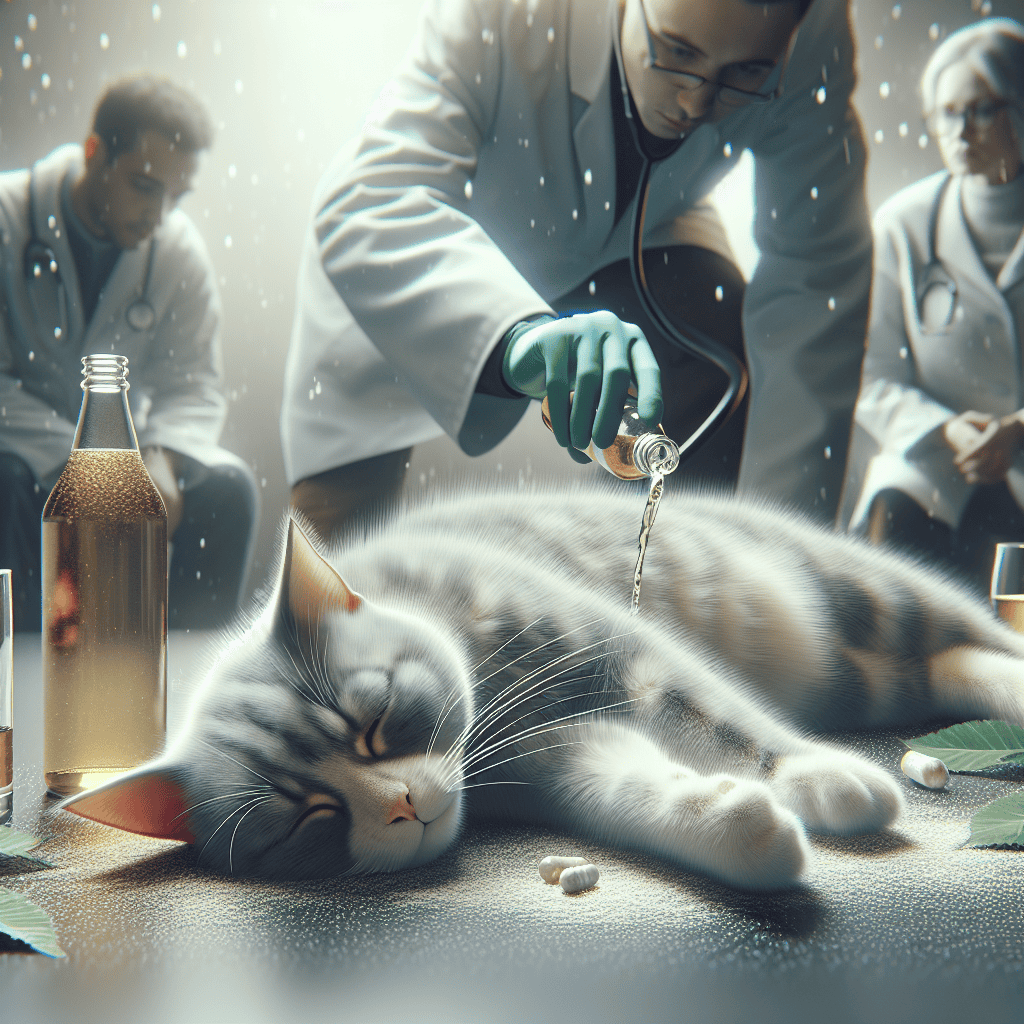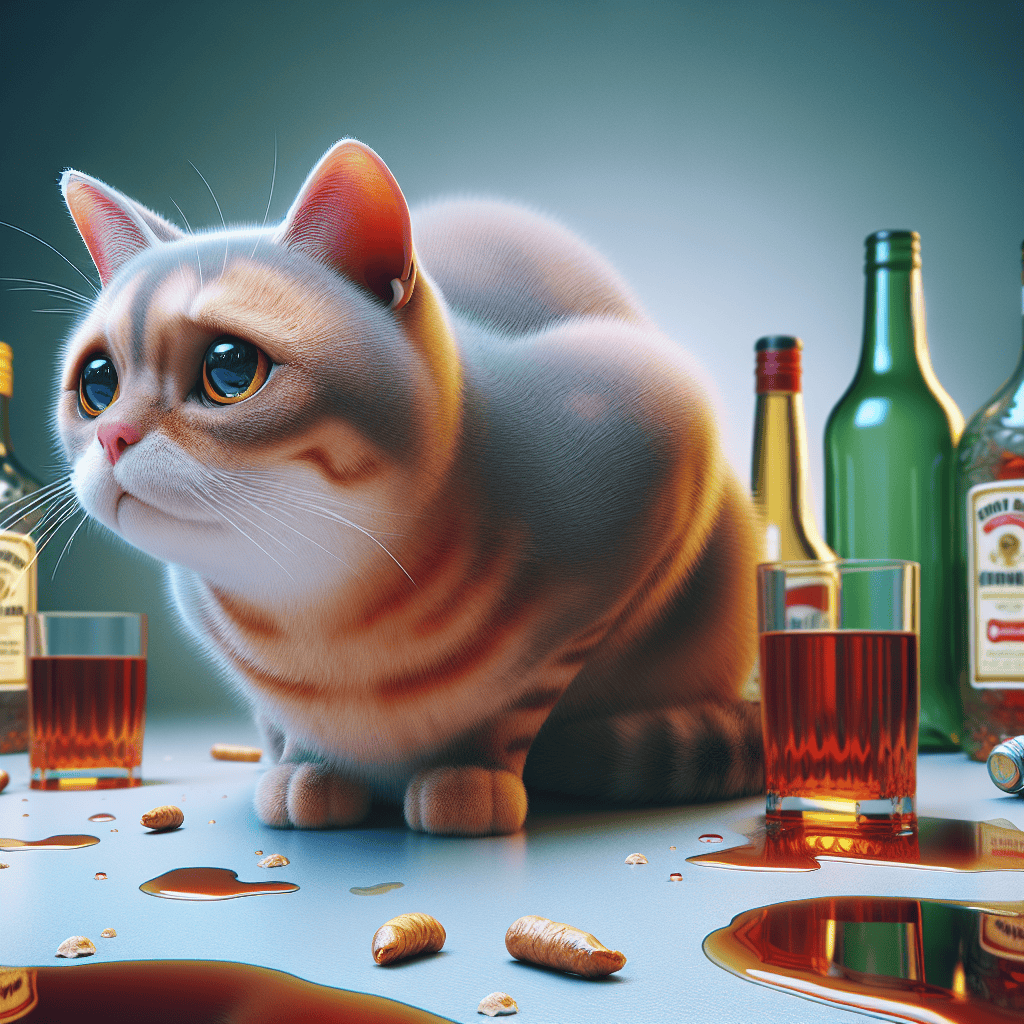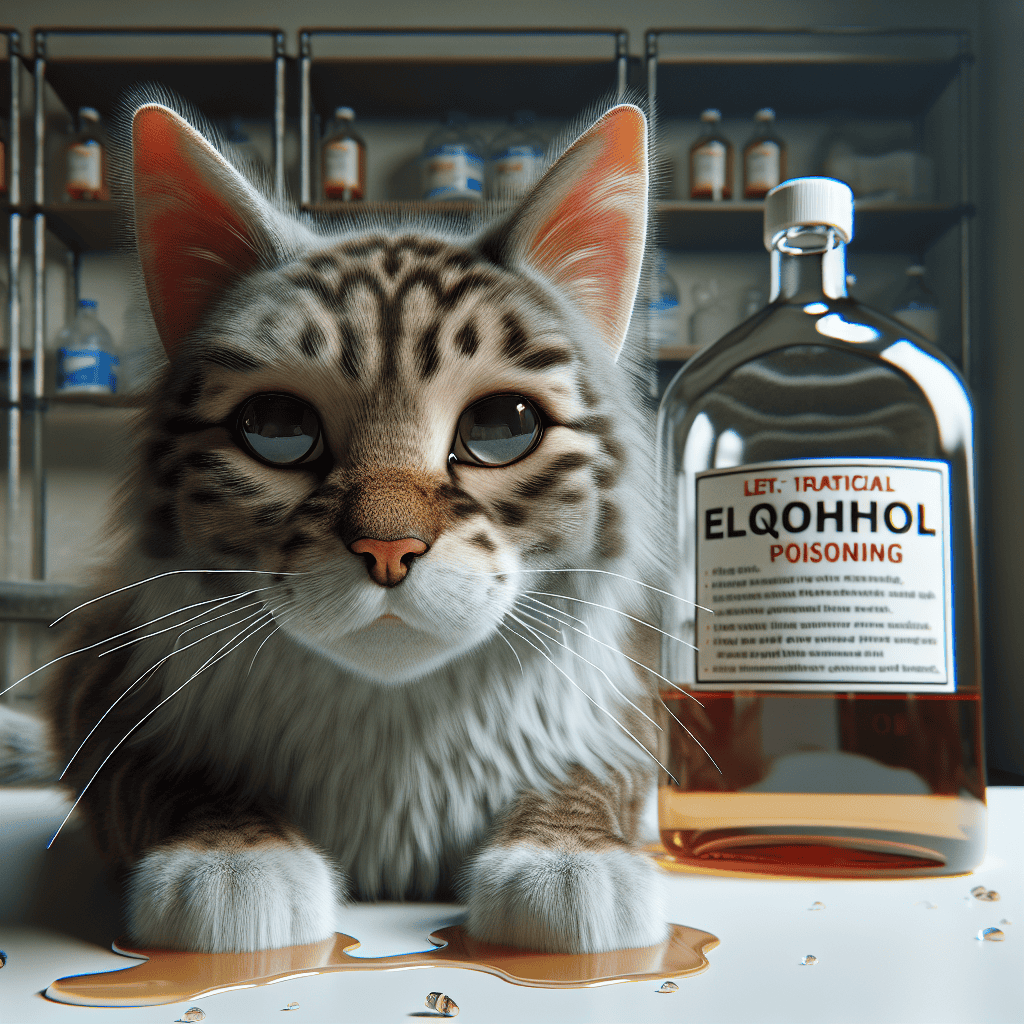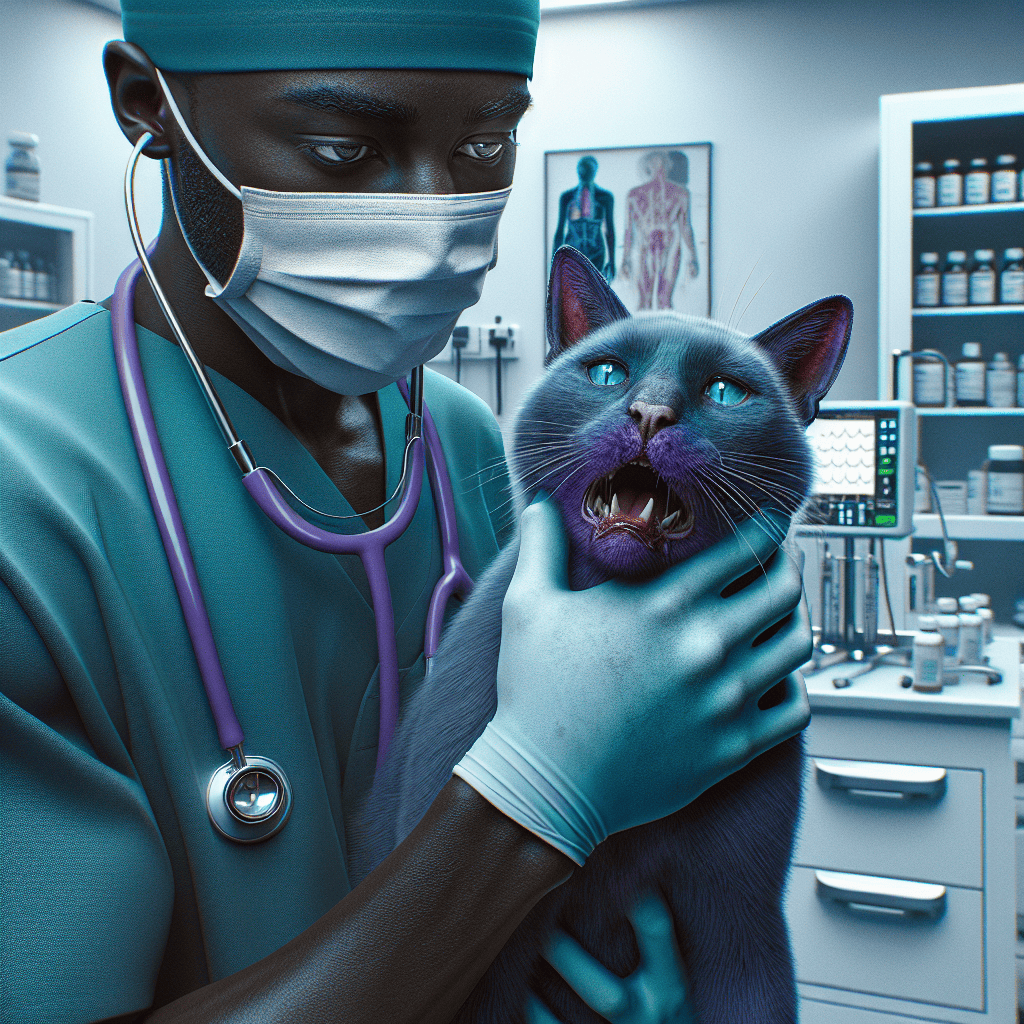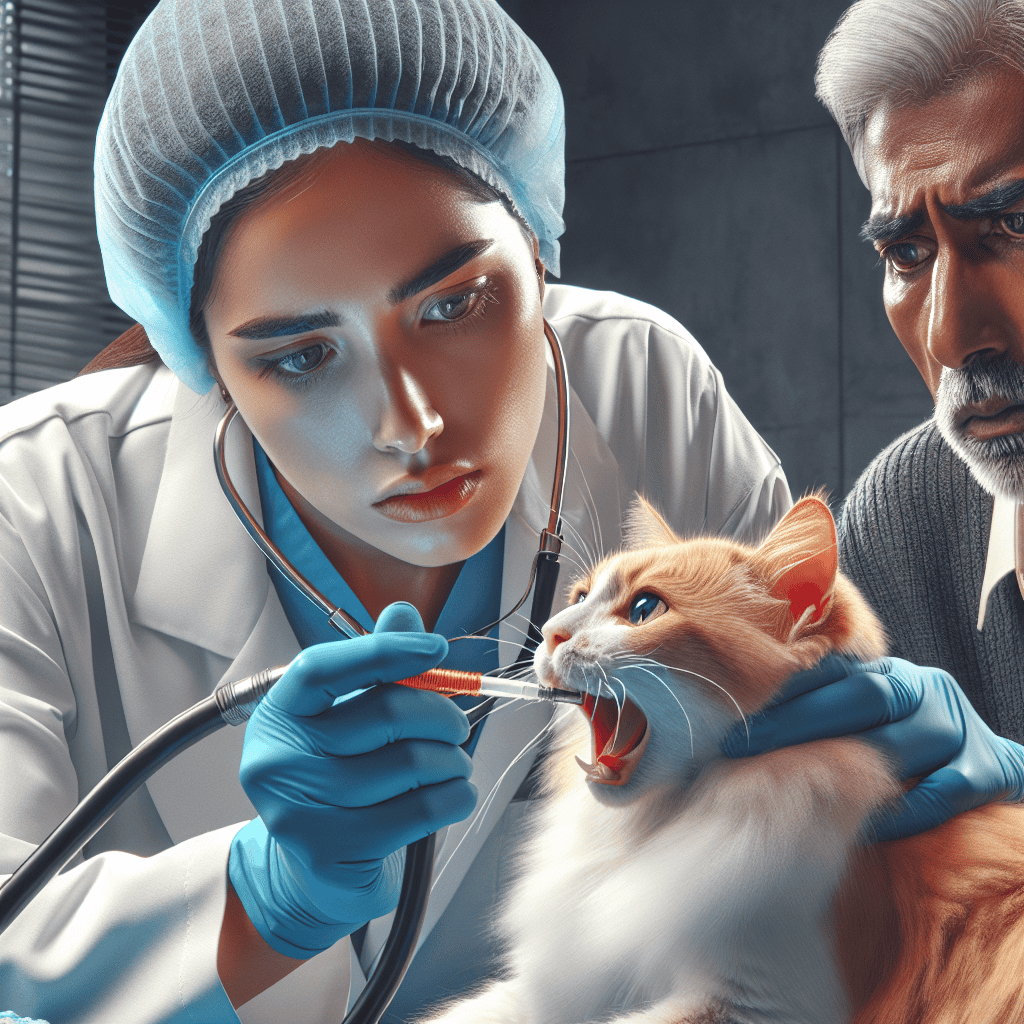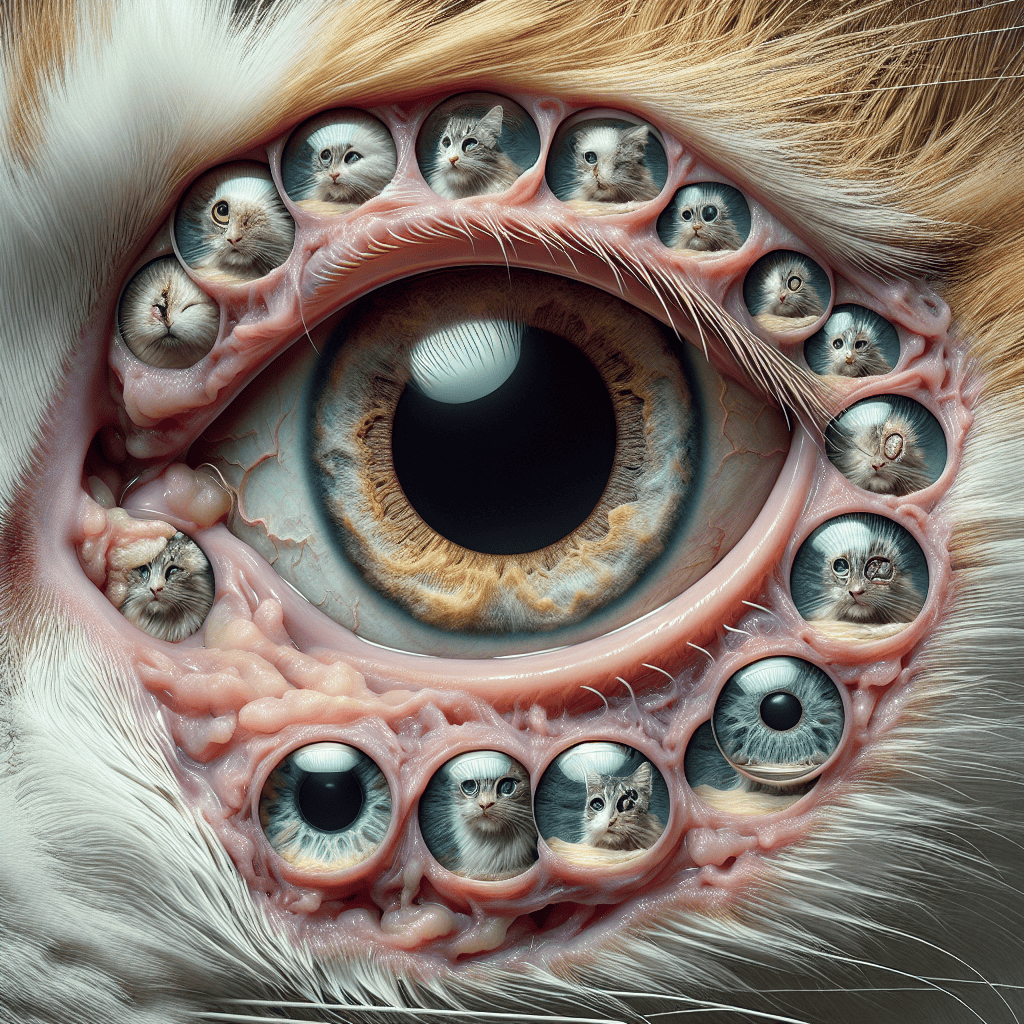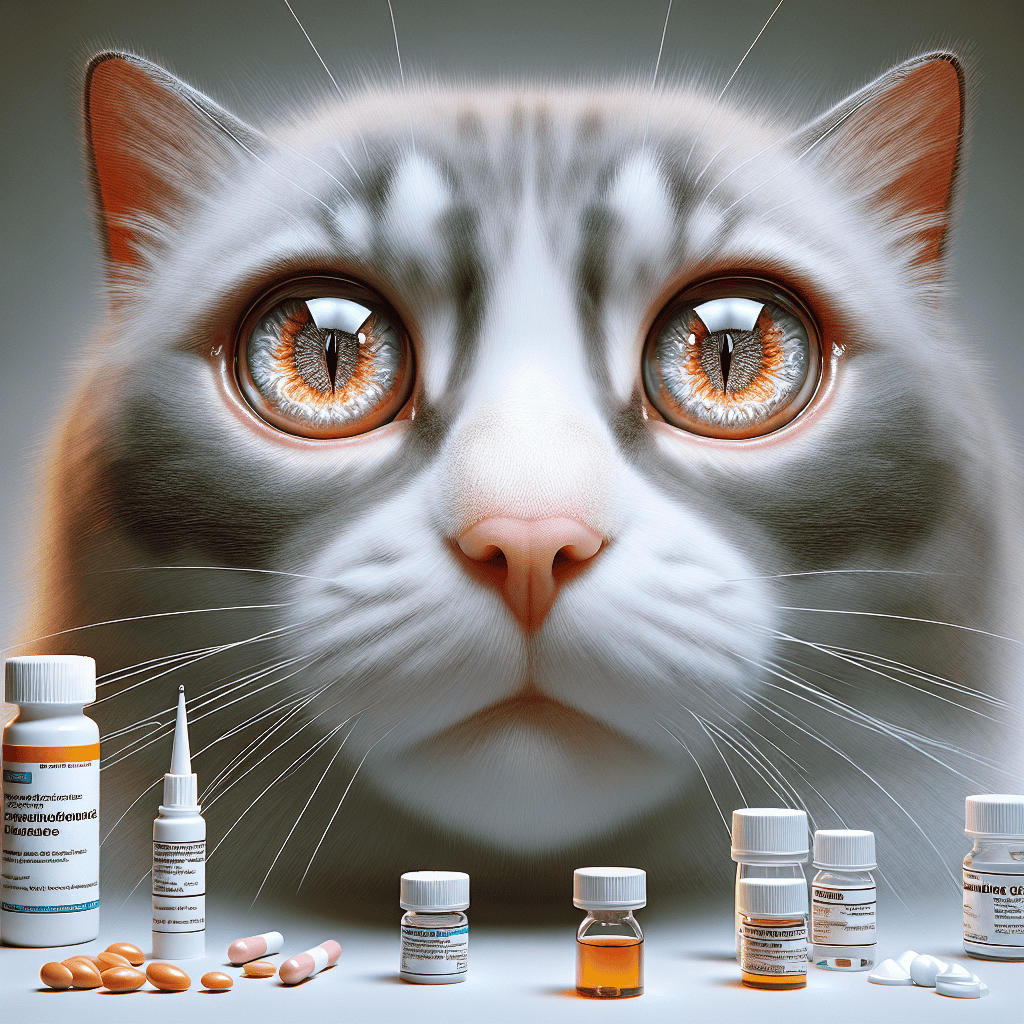Understanding Ethanol Poisoning
Ethanol poisoning is a serious condition that can affect cats, making them especially sensitive to alcohol compared to other animals (VCA Hospitals). Understanding the sensitivity and recognizing the clinical signs of ethanol poisoning is essential for timely intervention and effective treatment.
Ethanol Sensitivity in Cats
Cats are particularly susceptible to the toxic effects of ethanol, making them more vulnerable to ethanol poisoning. Even small amounts of ethanol can have a significant impact on a cat’s health. Ethanol is rapidly absorbed in the gastrointestinal tract and quickly affects the brain (Wagwalking).
Clinical Signs of Ethanol Poisoning
Clinical signs of ethanol poisoning in cats can develop rapidly, typically within 20 to 90 minutes after exposure to a toxic dose of alcohol. It is important to be vigilant for the following signs:
- Excessive sleepiness
- Stumbling or unsteady gait
- Disoriented behavior
- Nausea and vomiting
- Low body temperature
- Low blood sugar
- Increased thirst
- Increased urination
In severe cases, cats may experience the following symptoms:
- Slow respiratory rate
- Tremors
- Seizures
- Coma
- Death
If you suspect that your cat has ingested ethanol or is showing any of these signs, it is crucial to seek immediate veterinary care to prevent further complications.
To diagnose ethanol poisoning in cats, a veterinarian will perform a thorough physical examination and may recommend blood tests to assess the cat’s blood alcohol level and overall health. Early diagnosis and prompt treatment play a significant role in the successful management of ethanol poisoning in cats.
For information on the sources of ethanol poisoning and the symptoms to watch out for, refer to our section on causes and symptoms of ethanol poisoning.
Causes and Symptoms
Understanding the causes and symptoms of ethanol poisoning in cats is essential for recognizing and preventing this potentially dangerous condition.
Sources of Ethanol Poisoning
Ethanol poisoning in cats can occur when they ingest substances containing alcohol, such as beverages or fuel, or when ethanol is produced inside the body after ingesting items like uncooked pizza or bread dough. Cats can be exposed to ethanol through various household products, including antifreeze, hand sanitizers, and raw bread dough. Other potential sources of ethanol poisoning include spilled beverages, commercial products, medications containing alcohol, and skin exposure to alcohol-containing products (WagWalking, PetMD).
It’s important to note that the consumption of uncooked yeast bread dough can be particularly dangerous for cats. The dough continues to rise in the warm environment of the stomach, leading to gastric distention, volvulus (stomach twist), and respiratory difficulty. These symptoms require immediate medical attention as they can be life-threatening (Vetster).
Symptoms of Ethanol Poisoning
Ethanol affects the brain and nervous system of cats. The symptoms of ethanol poisoning can vary depending on the amount of alcohol ingested and the individual cat’s sensitivity. Common signs of ethanol poisoning in cats include:
- Disorientation and confusion
- Lethargy and weakness
- Lack of coordination and stumbling
- Excessive drooling and pawing at the mouth
- Vomiting and diarrhea
- Increased or decreased heart rate
- Respiratory distress
- Tremors or seizures
If you suspect that your cat may be experiencing ethanol poisoning, it is essential to seek immediate veterinary care. Prompt diagnosis and treatment can greatly improve the chances of a positive outcome. Remember, kittens and small cats are particularly vulnerable to ethanol poisoning due to their small body weight, so extra caution should be taken to prevent their exposure to alcohol-containing substances (Vetster).
Diagnosis and Treatment
When it comes to ethanol poisoning in cats, prompt diagnosis and treatment are crucial for a positive outcome. In this section, we will discuss the methods used to diagnose ethanol poisoning in cats and the treatment approaches that are typically employed.
Diagnosing Ethanol Poisoning
Diagnosing ethanol poisoning in cats involves a combination of clinical signs, history of potential exposure, and laboratory tests. Blood tests, such as measuring blood-ethanol concentrations, can help determine the presence and severity of ethanol toxicity. Additionally, urine tests may be conducted to assess for low blood sugar levels (hypoglycemia) and heightened levels of acid in the body. These tests aid in conclusively diagnosing ethanol poisoning.
Treatment Approaches
The treatment for ethanol poisoning in cats depends on the severity of symptoms and may vary from case to case. The primary goal of treatment is to stabilize the cat’s condition and eliminate the toxic effects of ethanol.
Treatment approaches for ethanol poisoning may include:
-
Intravenous (IV) Fluids: Administering fluids intravenously helps to correct dehydration and maintain electrolyte balance.
-
Central Nervous System Depression Medication: Medications may be administered to alleviate central nervous system depression caused by ethanol toxicity.
-
Inhibiting Alcohol Metabolism: Certain medications can be used to slow down the metabolism of alcohol in the body, allowing the cat’s system to eliminate ethanol more effectively.
In severe cases of ethanol poisoning, additional treatment measures may be required, such as:
-
Artificial Ventilation: If the cat experiences respiratory problems, artificial ventilation may be necessary to assist with breathing.
-
Cardiac Therapy: In the event of heart attacks or cardiac abnormalities, specific cardiac therapies may be implemented to stabilize the cat’s condition.
It’s important to note that the prognosis for cats with ethanol poisoning is better if treatment is administered promptly, ideally within three hours of ingestion, before kidney damage occurs. Early intervention significantly improves the chances of a successful recovery (WagWalking).
If you suspect your cat has ingested ethanol or is showing signs of poisoning, it is crucial to seek veterinary care immediately. A veterinarian will be able to provide the appropriate diagnosis and develop a tailored treatment plan for your cat’s specific needs.
Prognosis and Recovery
When it comes to ethanol poisoning in cats, prompt veterinary treatment plays a crucial role in the prognosis and recovery of affected felines. The prognosis for cats with ethanol poisoning is generally good if treatment is administered before kidney damage occurs, typically within three hours of ingestion. Regular monitoring by a veterinarian is essential during treatment, which may include induced vomiting, fluid therapy, and medication administration.
Recovery Expectations
With timely and appropriate treatment, the prognosis for recovery from ethanol poisoning in cats is excellent, as stated by VCA Hospitals. The majority of cats respond well to treatment and begin to show improvement within hours. Recovery usually takes around 8 to 12 hours, but in cases of severe intoxication or exposure to isopropanol, the recovery period may be longer.
It’s important to note that the duration of recovery can vary depending on the individual cat and the severity of the poisoning. Full return to health is expected within 24 hours for most cases. However, in situations where severe side effects occur or if the poisoning is left untreated, the prognosis becomes more guarded, as mentioned by Vetster.
Factors Affecting Prognosis
Several factors can influence the prognosis of ethanol poisoning in cats. The most significant factor is the timeliness of treatment. The earlier a cat receives veterinary care, the better their chances of a successful recovery. Treatment initiated within three hours of ingestion, before kidney damage occurs, offers a more favorable prognosis, as described by WagWalking.
The overall health of the cat and the severity of the poisoning are other factors that can affect the prognosis. Cats with pre-existing health conditions or those who have ingested large quantities of ethanol may require more intensive treatment and monitoring. It’s crucial to work closely with a veterinarian to determine the appropriate course of action for each individual case.
In conclusion, the prognosis for cats with ethanol poisoning is generally good if they receive prompt veterinary treatment, ideally within three hours of ingestion. Recovery is expected within 8 to 12 hours, although individual outcomes may vary. It’s essential to seek immediate veterinary care if you suspect your cat has been exposed to ethanol, as timely treatment significantly improves their chances of a successful recovery.
Prevention and Care
Preventing ethanol poisoning in cats is essential to safeguard their health and well-being. By taking proactive measures, you can significantly reduce the risk of your feline companion encountering this potentially dangerous condition. Additionally, providing proper care for cats at risk ensures their safety and minimizes the chances of ethanol poisoning.
Preventing Ethanol Poisoning
To help prevent ethanol poisoning in cats, it’s important to be aware of the potential sources of alcohol and take necessary precautions. Cats who roam outside or have access to products containing alcohol are at a greater risk of alcohol poisoning, especially kittens and small cats due to their low body weight (Vetster). Here are some preventive measures to consider:
-
Secure Alcohol-Containing Products: Store all alcoholic beverages, cleaning products, and other items containing alcohol in secure cabinets or high shelves that are inaccessible to your cat.
-
Dispose of Properly: Ensure proper disposal of empty alcoholic beverage containers and other alcohol-related products to prevent accidental ingestion.
-
Monitor Outdoor Access: If your cat has outdoor access, supervise their activities to minimize exposure to potential sources of alcohol, such as discarded alcoholic beverages or alcohol-based products.
-
Educate Others: Inform family members, friends, and visitors about the dangers of ethanol for cats. Encourage responsible behavior and discourage offering alcohol to cats as a form of entertainment.
Care for Cats at Risk
Cats who have ingested ethanol or are at risk of ethanol poisoning require immediate attention and appropriate care. If you suspect your cat has been exposed to alcohol or is displaying symptoms of alcohol poisoning, consult a veterinarian promptly. Here are some important points to consider:
-
Seek Veterinary Assistance: Contact your veterinarian or an emergency veterinary clinic immediately if you suspect your cat has ingested alcohol. Quick professional intervention is crucial for the well-being of your cat.
-
Avoid Home Remedies: Refrain from attempting home remedies or inducing vomiting without professional guidance. It’s important to consult a veterinarian for appropriate diagnosis and treatment.
-
Provide Supportive Care: Follow the guidance of your veterinarian regarding treatment approaches, which may include supportive care to manage symptoms and prevent complications.
-
Monitor and Observe: Keep a close eye on your cat’s behavior and condition during the recovery period. If any concerning signs or symptoms persist or worsen, contact your veterinarian for further advice.
Remember, alcohol poisoning in cats is relatively rare, but the severity of the condition depends on the type and amount of alcohol and the size of the cat (Vetster). By prioritizing prevention and providing appropriate care, you can ensure the well-being and safety of your feline companion.






